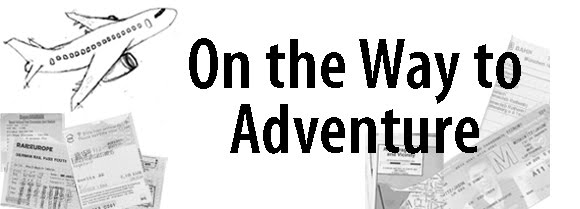I originally intended to title this posting “Never forget,” because I strongly believe in the importance of embracing history and drawing on it to make sense of current events. But I could not get past the connotation of that phrase, co-opted as it has seemingly been by xenophobic war-mongers. Instead I chose to reflect on a personal memory of that day, eight years ago.
Walking between second and third periods, I passed a guy named Jake on the stairs. Jake was the type of person who would say anything for attention, so when leaned towards me, shouting “They bombed us! The Pentagon and the twin towers,” I was understandably skeptical. Shaking my head ruefully, I distinctly remember thinking “God help anyone who would try to bomb the Pentagon.” Convinced that Jake was an idiot, I kept walking to class.
But as I made my away across the school to the remote first floor orange hallway, where Mr. Leveille’s class met, I began to notice something different. It’s difficult to articulate what exactly caught my attention. Maybe it was the passing glimpse of students, huddled around the TV in a classroom. Or maybe it was snippets of overheard conversations, echoing in the quiet hallways. Concrete reasons aside, by the time I strolled into 4th period Foundations of Programming, I knew that something seemed very off.
Idly chatting with my fellow classmates about this, a girl named Ashley thought something was wrong too. We approached our teacher and asked him if we could turn on the TV, because that we thought that “something might have happened.” Though a little confused, he shrugged and flicked it on, agreeing to let us watch until the bell rang. I will never, ever forget his reaction as he stared numbly at the screen.
We sat glued to the TV for the entire period. Watched, dumbfounded, as the second (north?) tower crumbled to the ground. At one point Mr. Leveille, who at the time couldn’t have been much older than I am now, muted the sound and struggled to find something appropriate to say to us. In retrospect, I cannot imagine how impossibly difficult this must have been, to be tasked with trying to teach at this moment; to make sense out of something utterly senseless. Taking a deep breath, he told us something like, “We’re going to turn the sound back on and watch this for the rest of the day. This is something that, for now, is far more important than Foundations of Programming. What happened today is probably going to change the rest of our lives and we need to pay attention to it.”
As a 16 year old high school student, I had no capacity to understand just how true this was. September 11 fundamentally altered the Bush administration, to say nothing of the overarching course of world history. Indeed, without 9/11 we’d have had no Afghanistan, no Iraq, no secret CIA torture prisons, no Patriot Act, and maybe no Barack Obama.
Many have used this anniversary to reflect on the far-reaching consequences of the terrorist attacks. But what I find most striking is their impact on an individual level. If I can recount, in such vivid, flashbulb moment detail, my memories of that bright, sunny morning, I’m sure that every other American can too. Much attention is paid to the heartbreak of those who lost loved ones in the attacks, or to the two wars that form part of that day’s brutal legacy. And rightfully so. But September 11th impacted everyone, if, for no other reason, because each of us can remember exactly what we were doing when we heard. Wouldn’t that make a moving collection of short essays – a broad selection of simple memories?
In this way, beyond its obviously visible impact on politics and war and many family’s lives, 9/11 imprinted itself on our national consciousness. We will never forget. Not because we have been given a mandate to tear apart our nation and the Middle East in search of extremists. But rather because we cannot, and should not, lose sight of the most formative and meaningful moments of our lives.

No comments:
Post a Comment